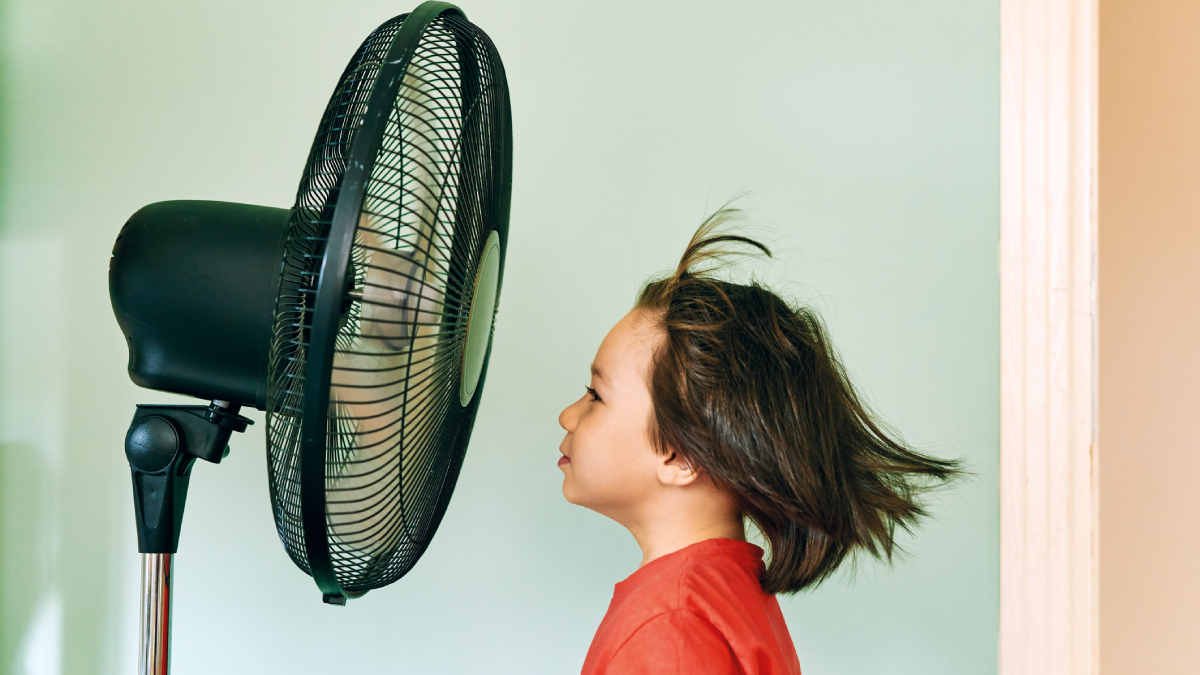Avoid These 12 Typical HVAC Headaches This Summer

During the heart of summer, you depend on your HVAC system to keep your home comfortable and safe from the heat. At the same time, the air conditioner may experience trouble as day-to-day use rises as the thermometer does. Here are 12 common HVAC issues in the summer to help you prevent or fix them as needed.
1. Weak Airflow
Airflow may get weaker if you have a clog in the air filter, faulty ductwork or a clogged condensing unit. Regularly scheduled maintenance such as swapping out the air filter, keeping all air registers open and trimming back any weeds from around the outdoor unit will help enhance airflow. A constant stream of problems might mean there are severe problems such as ductwork obstructions or a failing compressor, which all do best with professional service.
2. Coolant Leak
The supply of refrigerant is the main element in air conditioning. Leaking refrigerant decreases the system’s total supply and diminishes cooling efficiency, forcing your unit to work harder and harder even as the temperature control falls away. Refrigerant leaks are more frequent in older units but may pop up in any system under much higher usage. The signs of a leak include warm air blowing from your vents, sizzling or bubbling sounds, and unexpectedly high energy bills. Only a professional can handle the problem since working with refrigerant requires EPA certification.
3. High Humidity
Excessive indoor moisture levels makes the air feel damp and encourages mold spores. chills and dehumidifies the air simultaneously, but this may not always be sufficient in particularly warm climates. Installing a dehumidifier will often help fix the problem unless your air conditioner has small but growing issue causing humidity levels to get worse.
4. Improperly Adjusted Thermostat
Incorrect thermostat settings can lead to performance issues and a spike in energy costs. If you encounter trouble reaching the right temperature, take a look at your thermostat. If someone else at home keeps turning the settings up or down, it’s more of a hassle to balance comfort and energy efficiency.
5. No Electricity to the Air Conditioning
If an AC won’t start, check for a tripped breaker or blown fuse at first. If this isn’t the reason for the problem, there might be a problem with the unit’s capacitors or contactors, which are responsible for starting the unit. Call a professional to set up a repair visit.
6. Constantly Tripped Breakers
Continuing with circuit breakers, you shouldn’t have to constantly reset them. The HVAC system should always be on a dedicated circuit that is appropriately sized to handle this sort of equipment. Frequent circuit breaker trips can be a safety risk, since it’s an electrical issue that needs prompt attention.
7. Blocked Condensate Drain
The condensate drain removes moisture generated by your AC system’s cooling cycles. A clog in this drain can result in water damage or mold problems. It’s a good idea to consistently check and clear out this drain if you need to prevent problems like clogs or water damage.
8. Ice and Freezing Problems with Your Air Conditioner
A frozen air conditioner often is caused by low airflow or a refrigerant leak, both of which could prevent your HVAC from properly transferring hot and cold air. A solid layer of ice on the coil interrupts the cooling process and could even cause permanent damage. Regular maintenance is crucial if you want to stop freezing and maintain efficient performance.
9. Dirty Condenser Coils
The condenser coils on the outdoor unit of the system are always exposed to the elements, so they could get dirty over time. Spider webs, dirt and dust, grass clippings and other outdoor debris coat the unit, reducing its ability to release heat and worsening daily wear and tear. Clean these coils every now and then with a gentler spray from your garden hose to help ensure system efficiency.
10. Odd Smells
If you notice gross smells coming from the air conditioner, examine further to figure out where they’re coming from. A scorched smell often means electrical fires or an overheating motor, while a stale smell usually points back to mold growth somewhere. Strange smells often need quick attention to limit the risk of health problems and performance issues.
11. Strange Noises
Strange noises coming from your HVAC system is a telltale sign something isn’t right. Screeching is associated with a belt in need of replacement, while clanging or banging sounds may mean unsecure components. Don’t ignore these or similarly unfamiliar noises, as they could leave you with larger problems, constant repairs or complete system failure if not resolved quickly.
12. Short Cycling
Short cycling is when your air conditioner switches off and on more frequently than usual. This is usually pointing to an oversized air conditioner, dirty air filter or electrical damage. A malfunction like short cycling lowers efficiency and can cut your unit’s life span, so consult local professionals to determine the cause and find a solution.
We Are Committed to Your Comfort
At Crawford Services nothing should be more important than your comfort and peace of mind. Our ACE-certified technicians provide prompt, yet long-lasting solutions to all your comfort problems, fsupported by our 100% satisfaction guarantee. If you’re not totally happy with our work, we’ll make it right. So, whenever your air conditioner starts short cycling or making funny noises, contact us for Expert service that always exceeds expectations.

